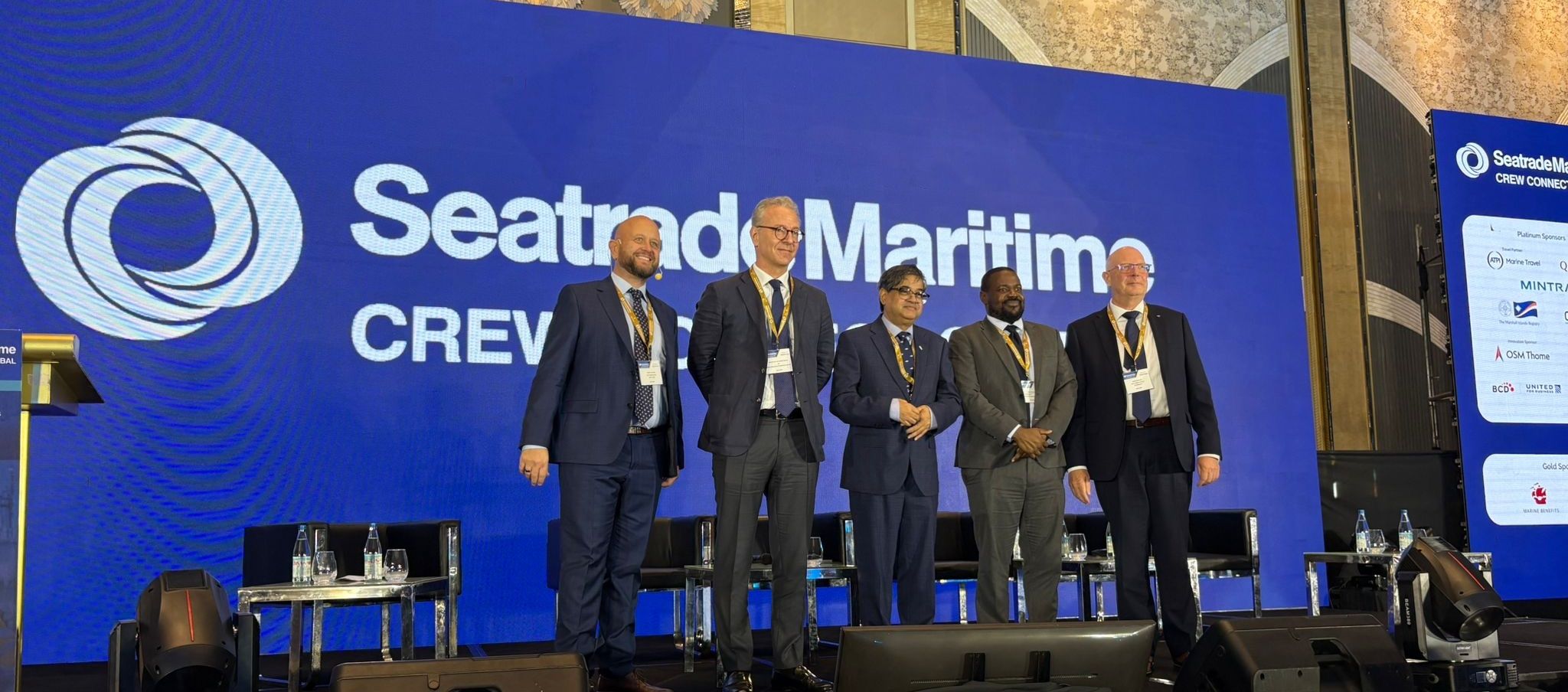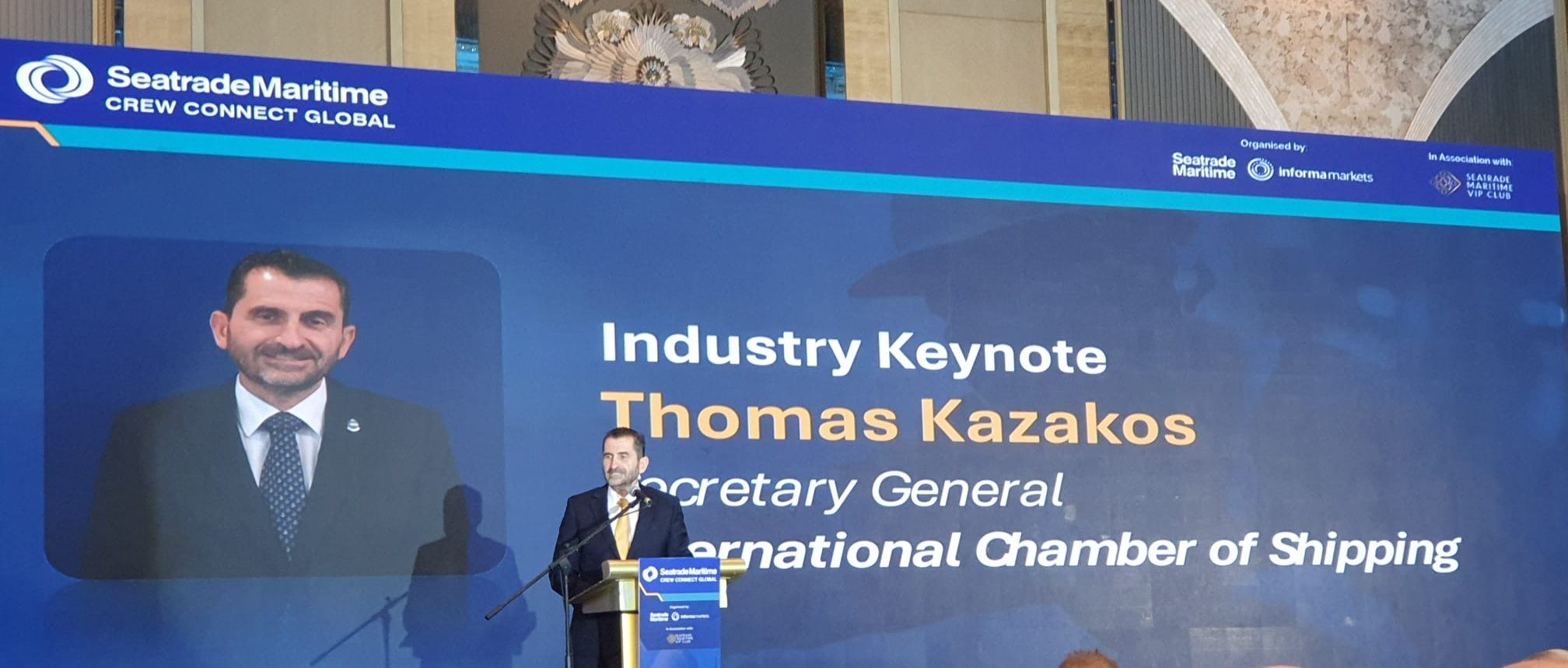The safety of seafarers in times of geopolitical unrest dominated the opening sessions of the Seatrade Maritime Crew Connect Global conference in Manila, as industry leaders stressed the urgent need to protect crews navigating increasingly volatile seas.
Addressing delegates, Thomas Kazakos, Secretary General of the International Chamber of Shipping (ICS), said seafarers must be allowed to perform their duties without risking their lives.
He noted that the global trade landscape is “shifting beneath our feet”, as protectionism rises and cooperation weakens, developments he described as deeply troubling.
From the oil industry’s perspective, Karen Davis, managing director of OCIMF, warned that in some regions “the sea has become a contested space marked by deliberate missile launches, drone attacks and GPS spoofing”.
She said that OCIMF’s maritime security committee continues to work closely with the IMO and industry partners to update Best Management Practices (BMP) and provide mariners with real-time intelligence and guidance tools.
Originally introduced as an anti-piracy framework, BMP now helps crews identify potential threats, assess risk and plan mitigation measures.
“When freedom of navigation is challenged, it is the seafarer who bears the risk,” Davis said, adding that crews continue to keep global trade moving through uncertainty and deserve not only gratitude but strong protection.

From the ship management side, Sebastian von Hardenberg, president of Intermanager and CEO of Bernhard Schulte Shipmanagement, made it clear that “it’s all about the safety of the crew”. Without safe crew, he said, there is no ship management, and without safe crew, there is no asset preservation for owners.
He described the current global environment as one where “certain lessons from the past seem forgotten” and conflict is once again being treated as a solution.
Von Hardenberg stressed that ship managers must be “very aware” of their unique position as the final line of defence for seafarer safety, given that charterers and owners often face competing commercial or operational priorities.
“Charterers have the safety of the crew at heart but may get distracted by commercial pressures,” he explained.
“Owners, too, have crew safety at heart but can be influenced by trading area restrictions. So we, as ship managers, must remain vigilant, we are the final protective barrier.”
Representing tanker owners, Frans Ubaghs, senior vetting manager and deputy director marine at Intertanko, focused on the importance of communication between charterers, operators, agents, and the ship’s Master, particularly in conflict zones or dangerous work environments such as enclosed spaces.
He emphasised that “the overriding authority of the Master must be ensured”, describing the principle of “stop work authority” as fundamental. Ubaghs added that Intertanko is collaborating with OCIMF to improve communication practices in such high-risk situations.
Davis also touched on the human element behind modern technology, noting that while systems are designed to make shipping safer and cleaner, they can fail, leaving critical decisions to humans operating under immense pressure.
GPS spoofing, for instance, has become increasingly common in key waterways in the Middle East, including among vessels in the so-called “dark fleet” engaged in sanctions evasion, posing serious navigational risks.
“GPS interference and spoofing are daily realities,” Davis said.
“That’s why OCIMF and our partners continue to advocate for resilient and visible aids to navigation, and for strengthening core navigational skills. Technology should never outpace human capability, engineering should make it easier, not harder, to get it right,” Davis concluded.






Click here to change your cookie preferences